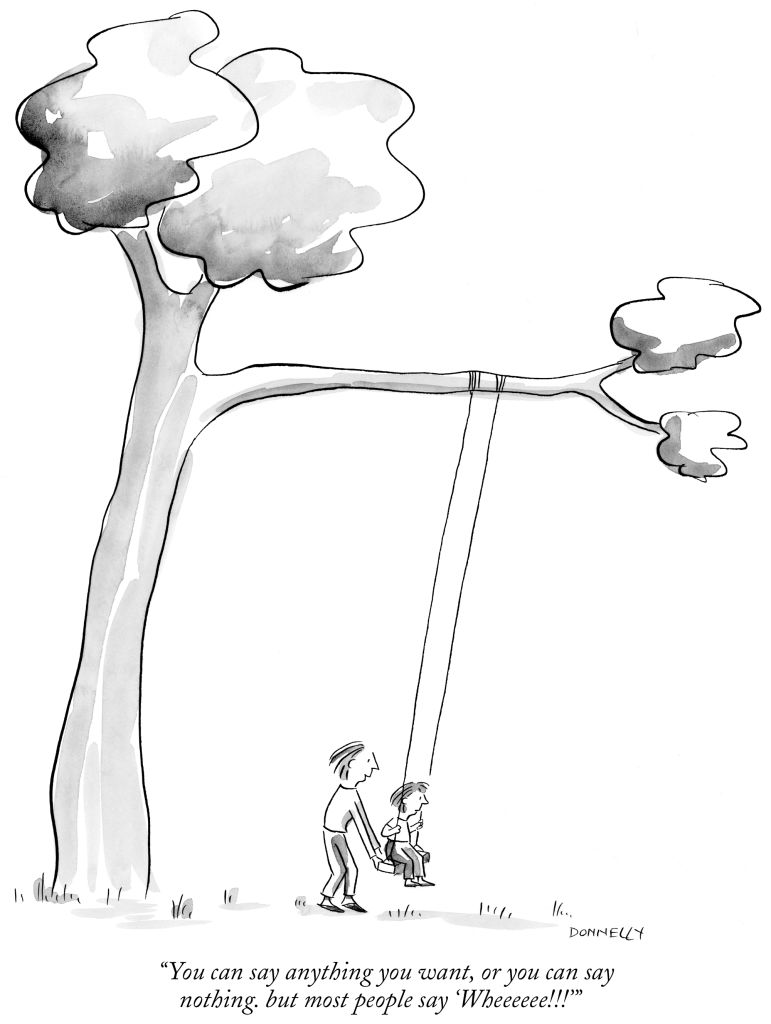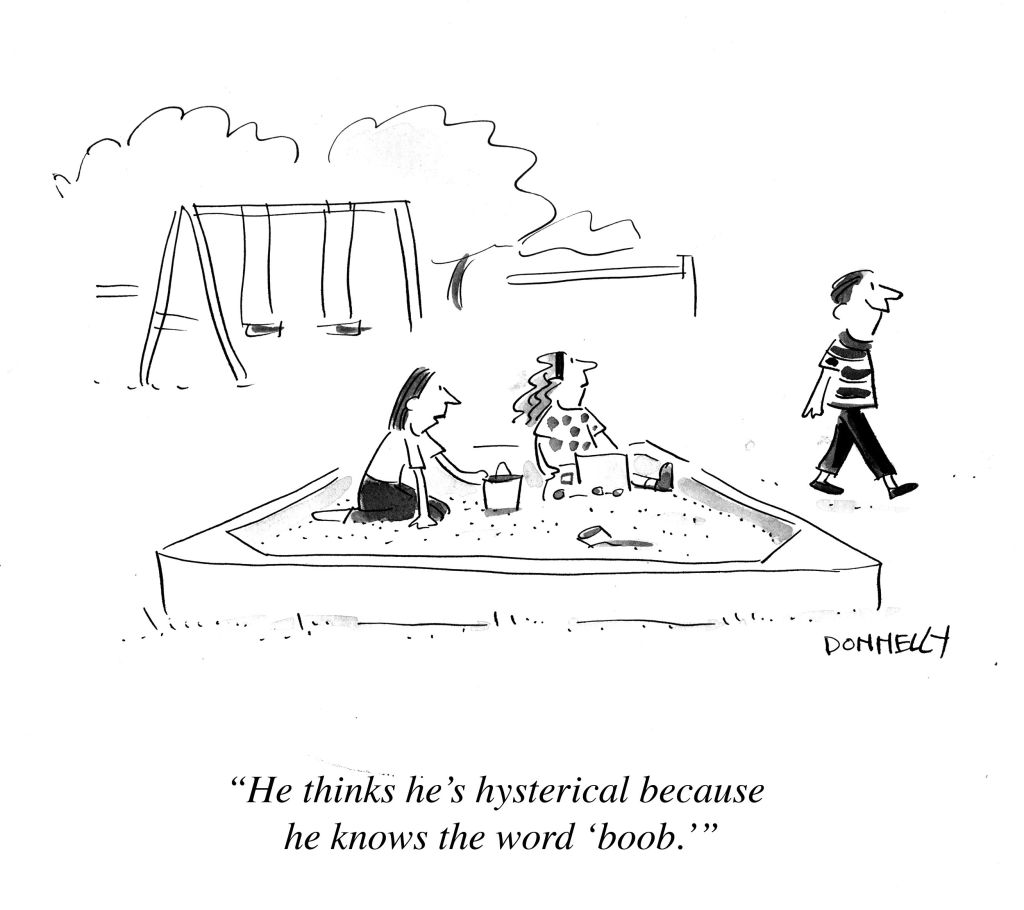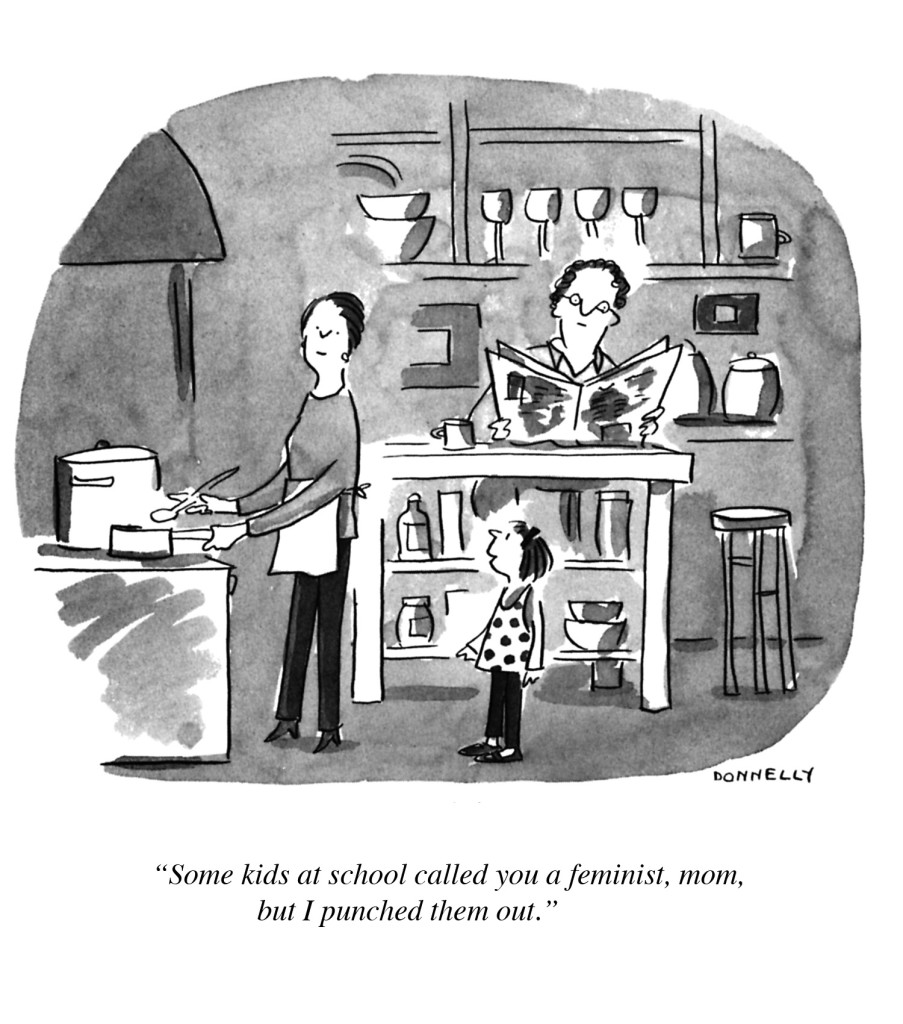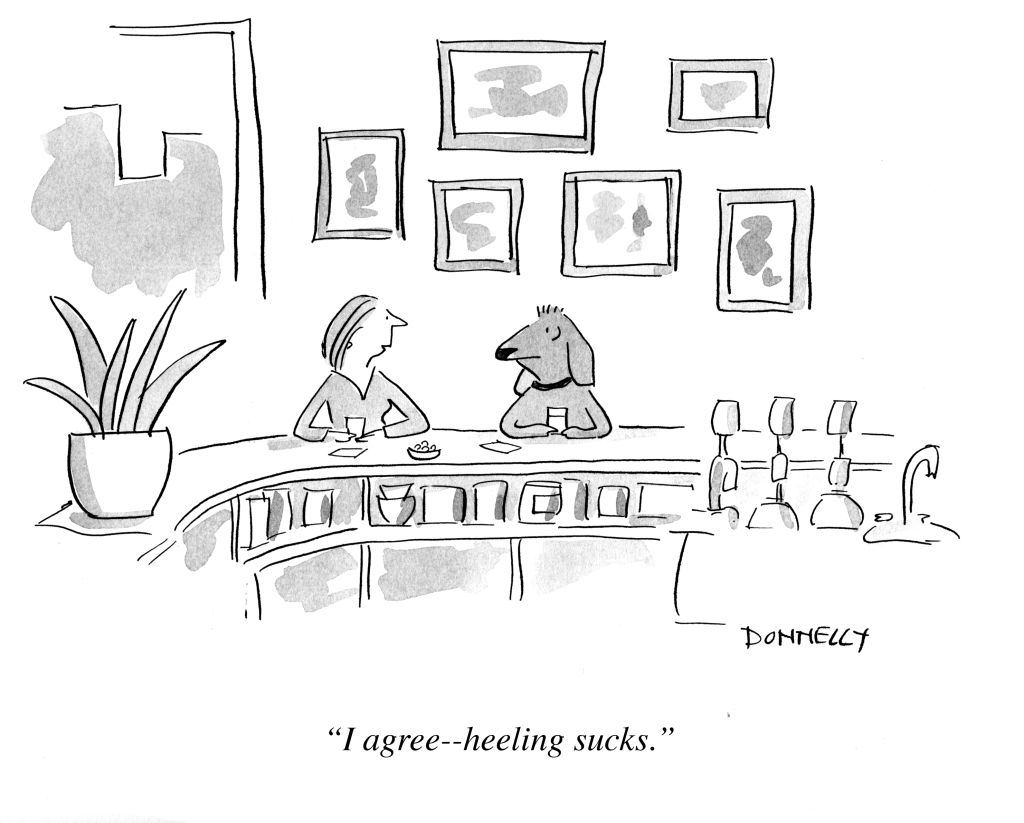 Above is one of my personal favorite cartoons about mothers. I posted a slide show of mother cartoons and a short essay about my mother on my Forbes column. I hope you go take a look. Here is another one of my favorites, drawn over a decade ago, but still relevant, sadly:
Above is one of my personal favorite cartoons about mothers. I posted a slide show of mother cartoons and a short essay about my mother on my Forbes column. I hope you go take a look. Here is another one of my favorites, drawn over a decade ago, but still relevant, sadly:
Tag: humor
Increase The Levity: Allow Same Sex Marriage
After twenty five years of marriage, I know how funny it can be. Increase the number of people entering matrimony, and we increase the fun. And it gives us humorists more material.
Humor, Seth MacFarlane and Boobs at The Oscars
 I was happily surprised at all the blow-back about Seth McFarlane’s performance at the Oscars. The New Yorker was critical, as were The New York Times, The Atlantic, and Salon. Smaller sites that focus on women’s rights, like Jezebel and Feministing weighed in as well, as did Ms. Magazine
I was happily surprised at all the blow-back about Seth McFarlane’s performance at the Oscars. The New Yorker was critical, as were The New York Times, The Atlantic, and Salon. Smaller sites that focus on women’s rights, like Jezebel and Feministing weighed in as well, as did Ms. Magazine
But the days following all the coverage, I found myself a bit dejected: haven’t we been here before? When will misogyny not rank as high quality humor? Granted, humor equality is not high on the list of things we need to fix for women in the world. But we need to fix it, because I think it is symptomatic of the larger issues.
Humor in a society is reflective of what a culture values and doesn’t value, that’s how humor works. It takes what we know, the given in our society, and twists it–and that is what elicits the laugh. The unexpected makes us laugh. So when Mr. McFarlane sang a song about boobs, many of us did not laugh. It isn’t funny anymore. Not only is it humor we have heard from comedians since the dawn of time, we heard the same jokes in grade school. If the song about breasts in film were not enough, McFarlane went on to do jokes about battered women, bulimia, racial and religious profiling.
This type of humor is not only not top quality humor, it’s offensive. If McFarlane and others want to practice it, they have the right. But as a society, we cannot condone sexist, racist and homophobic humor as anything but wrong.
We need to loudly maintain a new standard for what is funny. We are beginning to do so, with the rise of Tina Fey and Amy Poehler. Even in this regard, we have been here before. Whoopi Goldberg rose to fame decades ago as representative of a new standard of humor in the age of Andrew Dice Clay. Cultural sexism rises and falls with each generation, but I think each time it is getting less and less. For this reason, we–men and women– have to keep pushing out new forms of humor, and not let the old fashioned male standard of humor continue to be seen as what is “good.”
Or maybe we should just go back to the fourth grade.
Follow me on twitter.
Bridesmaids
I want to weigh in on Kristin Wiig‘s new comedy, Bridesmaids, which I got a chance to see on Saturday. I laughed a lot. What I liked about it was not the bathroom humor, of which there is a fair amount. Frankly, I am just squeemish about seeing vomit (however, the scene I am speaking about is hilarious in its conception, because it makes fun of the wedding industry). I loved the humor in the film that is directed at the stupid rules in our culture. Bridesmaids was at once insightful and hilarious. The characters were wonderfully acted by actors who come from an Improv background, which I am learning is what gave the movie a fresh feel– it in no way felt over-written. Sometimes in comedies, one feels like the “jokes” are highly scripted and often fall flat. Not in Bridesmaids. The humor was as whacky as it was real and insightful. Wiig is a talented comedic actress, with a body meant to be funny.
Is it a chick-flick? No– it is a movie about people. It is funny and the actors are hilarious. Is it about a bunch of women? Yes, but the story (which is pretty thin) is about the human condition. It is a story that both men and women experience: friendship and change.
It really is not up for debate anymore about whether or not women are funny. They are. What the problem is is that the powers-that-be still think we humans segregate our humor into “for guys” and “for girls.” That men don’t want to see a movie with funny women, and visa versa. So they keep peddling humor that they think we want: and nothing is less funny than humor written by one gender that is thought to be what the other gender likes. It just doesn’t work–it comes out forced and false. Bridesmaids is more than what some are saying, that it is a chick-flick that can appeal to men because of the gross humor. On the surface, it may seem that way. I think it is better than that.
For years, we have been made to think we like a certain type of movie, and many women buy into it. Not any more, not with the likes of Tina Fey, Amy Pohler and Kristen Wiig (and her co-writer for Bridesmaids, Annie Mumolo) at the helm. They write material–some of which is about what it’s like to be a woman–that is funny for everyone. They seem to write and act how they want to, and this is to be celebrated.
I still have issues with some of the movie–that Wiig’s character, while not explicitly stating so, feels that she is incomplete/unsuccessful without a man. Or that the “most funny” character is the heavy-set “ugly” one–played by the talented Melissa McCarthy. These are stereotypes we need to get rid of. Do I wish the movie had more of a story, and that the producers didn’t feel it necessary to put in the gross humor for ticket sales? Yes. Many feminists may negatively review this movie, perhaps for reasons I mention above and more. But when I step back and think about the positives of this movie, I am encouraged for the future of women in humor.
Video of My TED Talk
Last December, I delivered a talk for TED. In fact it was the first ever TEDWomen and was a great event. I met many amazing, dedicated men and women whose work is to help women around the globe. The editors at TED just released the video of my talk.
Writing the talk took over a month. It began as long speech, and I spent weeks pairing it down to the six minutes I was allotted. I also worked with a very talented coach, Trisha Bauman, who helped be understand many new (to me) key elements for successful public speaking and performance. While I have given numerous talks over the years, this was the first one that I felt I should memorize. In fact, memorization really frees you up, and allows you to connect with the audience and with what you are saying much more naturally.
The audience at the conference was wonderful. In fact you can hear me laughing with them because I was so taken aback by their loud spontaneous laughter. It was great. Many of the other talks were (rightfully) serious, and I sense that the audience was looking for relief, which I provided. While many of the other speakers were serious with touches of humor, I was humorous with an underlying note of serious. My favorite way to be.
On Humor and Feminism
The new blog, No Country for Young Women, transcribed my speech at Omega Institute and features it on their home page today. The creator of the blog is the wonderful filmaker Elena Rossini. You can find her work on The Illusionists website and her website.
Here is the link to the transcipt, and a few of my cartoons. I will post the video of the speech soon.


